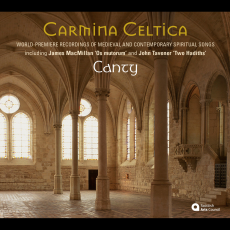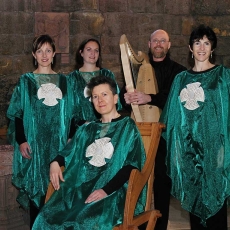Canty - Carmina Celtica - Gramophone
It has become a cliché to issue choral compilations combining plainchant and early polyphonic music with spiritually saturated, consonant-sounding settings by contemporary composers. Marketing strategies have been responsible for the very worst ones, but there can be no doubting the integrity of Canty's intentions here.
There's a genuine and honest attempt to integrate old and new elements here. Liturgical psalms and hymns rub shoulders with luminous settings of sacred texts by James MacMillan, Ivan Moody, Gabriel Jackson et al. Such temporal shifts often sound seamless - Michael McGlynn's Lorica being the most obvious in its deliberate evocation of organum through the use of parallel vocal movement. But most settings respond to, or comment upon the polyphonic tradition while remaining rooted in the present day. The new settings may be modal or tonal in design but are often tricky to sing, especially when consonant clusters are stacked on top of one another, such as in Peter McGarr's Flower Garland or Joanne Metcalf's Shining Light. That Canty negotiate such polyphonic pitfalls with consummate ease is an indication of both their inherent musicality and extensive experience in performing new works.
What provides the recording with a very special dimension is the harp playing of William Taylor, however. Using harps from the early Medieval and Renaissance periods, their resonant, incisive and metallic timbres provide effective contrast to the choir's softer tones. It is the integration of both choral and harp elements in James McCarthy's celestial The Stars in their Courses (a work I'm officially not supposed to mention because, though I didn't initially realise this, its composer is the Reviews Editor!) and John Tavener's oriental Two Hadiths that ultimately stand out on this highly impressive and imaginative synthesis of old and new.

